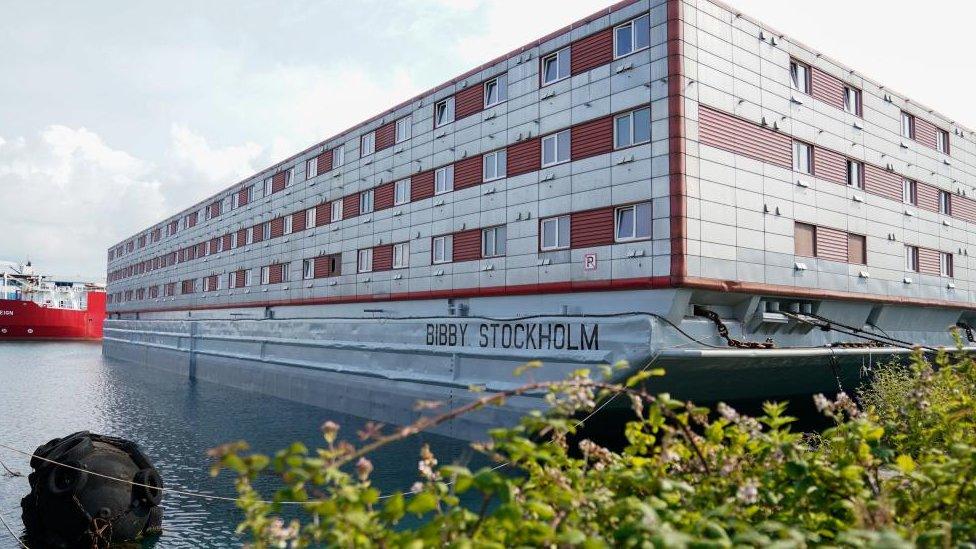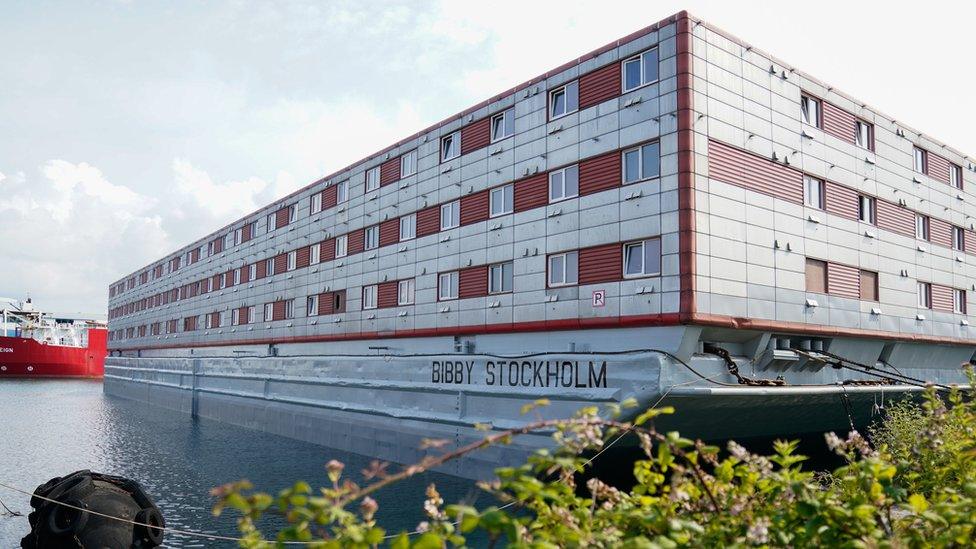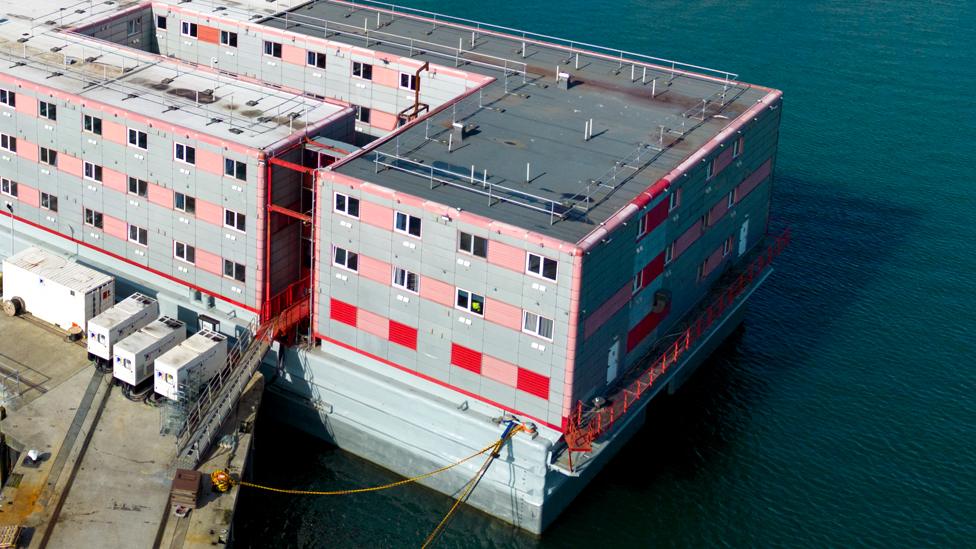Bibby Stockholm: Asylum seeker, 27, who died on barge identified as Leonard Farruku
- Published

An asylum seeker who died while being held on board the Bibby Stockholm barge was a 27-year-old Albanian named Leonard Farruku, BBC News understands.
His body was found on the vessel, which is moored off Portland in Dorset, on 12 December.
The barge, which is capable of housing 500 men awaiting asylum decisions, first came into use in August.
Home Secretary James Cleverly has said the death would be "fully investigated".
Mr Farruku's death has led to calls for an independent investigation from campaigners, who have also raised wider concerns about conditions on the barge.
Refugee charity Care4Calais held a vigil for the man at the port earlier this week.
The Telegraph, which first reported, external Mr Farruku's identity, said he had paid almost £3,500 to travel to the UK across the Channel in a small boat.
BBC News has spoken to asylum seekers who said Mr Farruku was heard shouting in a corridor in the hours before his body was found.
They claimed he was confronted by security staff in the early hours of the morning after loudly making complaints about conditions on the Bibby Stockholm.
When asked about those claims earlier this week, a Home Office spokesperson said it took its responsibility for the well-being of those on board incredibly seriously.
A spokesperson said: "This will now be investigated by the police and coroner. It is right that the facts and circumstances surrounding this death are established."
Plans to use a barge to house asylum seekers were announced as a way of cutting the government's £8m a day bill for private hotel accommodation.
Last week, the Home Office's top civil servant Sir Matthew Rycroft told MPs in a letter, external that the cost of the Bibby Stockholm contract was £22,450,772.
He said a "value for money assessment" is under way to break down the cost of housing someone on the barge for a night.
Conditions on the Bibby Stockholm came under scrutiny days after the first asylum seekers were moved on board when the bacteria Legionella was discovered in the water supply.
The barge had to be emptied but began being used again around two months later.
Related topics
- Published16 December 2023

- Published13 December 2023
